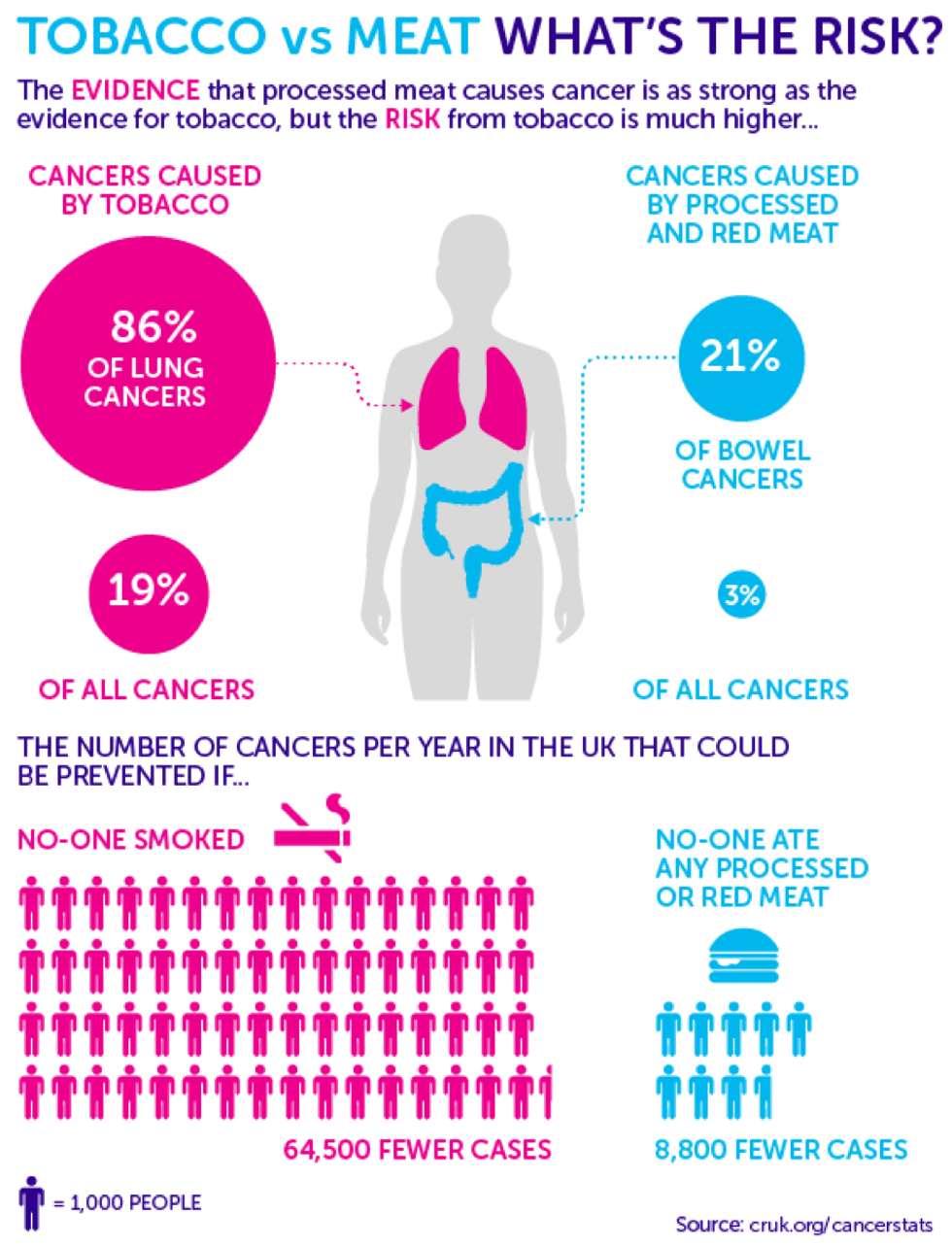The International Agency for Research on Cancer (IARC), an intergovernmental agency forming part of the World Health Organization (WHO), recently served us a mouthful. On Monday, October 26, the IARC reported that processed meats and red meats are linked to cancer.
After analyzing 800 scientific studies, the IARC categorized processed meats as a Group 1 Carcinogenic. Under this category, “there is enough evidence to conclude that it can cause cancer in humans.” Red meats were placed in Group 2A, which means that there is probable cause of cancer, but the evidence is inconclusive.
Processed meats are those altered through methods like salting, curing, and fermentation. Bacon, ham, and sausage are prime examples. Eating 50 grams per day of these meats can increase the risk of colorectal cancer by 18%.
Red meat includes muscle meat such as beef, pork, and lamb. The data suggest that eating 100 daily portions can increase the likelihood of colorectal cancer by 17%. To put the portion in to perspective, 100 grams equals a ½ cup of cooked ground beef or a ¼ pound of T-bone steak. While there was association noticed primarily for colorectal cancer, high consumption of red meat was also correlated with development of pancreatic and prostate cancer.
Now, should you get up and remove the processed meat and red meat from your fridge? Hold your horses. According to a health information officer at Cancer Research UK, if you followed 1,000 people throughout their lifetime, about 60 of them would contract colorectal cancer. Those people don’t even have to be heavy meat eaters.
Furthermore, there are numerous potential carcinogens, but not every “carcinogen” is the same. Take processed or red meat versus tobacco. According to a study in the UK, the evidence for developing cancer from either matter is the same. However, the image below shows that reality tells a different story. The fact of the matter is that two substances carrying the same label do not always bear the same weight.
While processed meats and red meats do not lead to the same high levels of cancer as other items do, you still need to eat them in moderation. Remember, there is strong and consistent data linking high consumption of these meats to cardiovascular diseases. You need to be conscious of the fact that your body is not immune to all diseases.
Our busy lives and/or tight budgets do not always allow us to think rational thoughts and act upon them. We are full-time students, parents, and supervisors. When we need to do our jobs, our time is precious. When we are hungry we just need a quick bite. When our wallets are nearly empty and our stomachs are growling, we prefer the cheapest dishes. Burgers, pizzas, hot dogs, and tacos come to mind? Our focus on time and money easily obstruct our hamper our focus on staying healthy.
The key is to think long-term and have people that are on the same page as you. Those won’t be easy tasks, but no one said that rewards come easy. Find your way to these goals, one bite at a time.
Did I unsettle you and now you want to learn how to reduce your chances of getting colorectal cancer? Check out what the Mayo Clinic recommends.




















